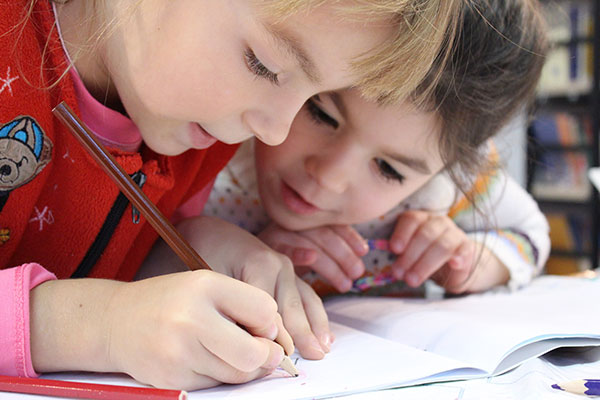A nutritious diet is the “very foundation of equality” that is underrated as the “key determinant” in children’s life chances and the highest risk factor for ill health in the UK.
That is the key message from the author of the UK’s first National Food Strategy, Henry Dimbleby, as he unveiled the landmark report’s first recommendations today (29 July) in a comprehensive tying together of access to nutritional food, equality, sustainable farming and trade.
A raft of measures to halt child food poverty, including an expansion of the Free School Meal vouchers brought to recent attention by Marcus Rashford, increasing the value of Healthy Start Vouchers and expanding the government’s holiday activity and food programme were among the headlines of the report.
It lambasted the UK’s diet as a “slow-motion disaster” and a “medical emergency” while focusing attention on inequality, linking low incomes to poor diets and subsequent high health risks.
“Unless action is taken to improve our food system, many thousands will continue to suffer. This does not have to be the case,” said Dimbleby.
“Most urgently we must ensure that our most disadvantaged children – who are already at risk of being left behind by this crisis can access healthy food. The very foundation of equality of opportunity has to be a nutritious diet.
“Although the recommendations in this report are merely a first step, I urge the government to implement them quickly. In doing so, it will improve the health of the nation and be a necessary pillar of its ambition to level up society.”
The steps around child food poverty would provide a “nutritional safety net” for low income households, the report said, stating that diet is a key determinant of children’s life chances.
Fears have been growing around the risk to children from low-income backgrounds after schools closed due to Covid-19, where many receive their only nutritionally sufficient meal of the day. A poorly nourished child will struggle to concentrate and suffer from reduced educational prospects, while low income people are more likely to suffer from both hunger and obesity, the report said.
The report said an estimated three million children are at risk of hunger in the school holidays, with data showing food bank usage accelerating during this period. In 2019, the holiday and food programme reached just 50,000 children, and by expanding it at a cost of £200m to all children who receive free school meals, it could reach an additional 1.1m children.

“A nutritionally poor quality diet is the leading risk factor for ill-health in the UK, yet we do not treat it with the same seriousness afforded to other risk factors. That has to change,” said professor of diet and population health, Susan Jebb.
“The Covid-19 pandemic has been a wake-up call that obesity in particular increases the risk of suffering serious complications from the virus, but a poor diet also increases the risk of diabetes, heart disease and some cancers.
“This report makes clear the gravity of the situation and the stark inequalities that are evident across the food system. Children, particularly those from disadvantaged backgrounds, are disproportionately affected by the harms of a poor diet, and this sows the seeds of health problems in later life.”
Using data from before Covid-19, the report said that poor diets are responsible for one in seven deaths in the UK, more than traffic accidents and almost as many as smoking. Obese people are 150 per cent more likely to be admitted to intensive care with Covid-19, according to the report.
‘Qualified’ free trade
Tackling child food poverty makes up the report’s short-term recommendations around post-Covid recovery, but it also includes points on sustainable farming, post-Brexit trade deals and a green recovery.
The much-anticipated new version of the Agriculture Bill, which will pay farmers for environmental services, should be bolder in its ambitions, the report said, and aim to recruit more farmers onto land management schemes that are designed to protect the environment.
It stopped short of stating that US-produced food, which has hugely different standards on things like chemicals, medication or animal welfare, should be banned, and instead took a middle road approach of recommending a ‘verification programme’, that would leave the door open to US farmers who do meet British standards.
The idea of a ‘qualified’ free trade was also welcomed by the NFU, which has campaigned vocally for British farmers who fear being undercut by cheaper imports.
President Minette Batters said: “We welcome the recommendation to ensure new trade deals are subjected to a ‘gold standard’ of scrutiny that is independent, evidence-based, holistic and statutory. This would allow us to pursue new deals and enjoy the benefits of free trade, without sacrificing the standards and values which British farmers work so hard to uphold.”
Speaking to Wicked Leeks, a source close to the report said that Dimbleby’s ability to connect with Tory ideals of free trade, as well as take counsel from a variety of charities, food sustainability campaigners and farming unions, means he is well-placed to ask challenging questions and make progress in bureaucratic areas of food policy.
Part two of the National Food Strategy will be published in 2021 and is due to cover food system economics, climate change, biodiversity, pollution and sustainable use of resources.
Read the interview with Henry Dimbleby on Wicked Leeks here.













The disaster that is a hard Brexit will highlight our very fragile food security in this country, hopefully this will be a first step towards bringing farming and wildlife together to produce our own sustainable food culture, but it is a big ask.
Jennyh